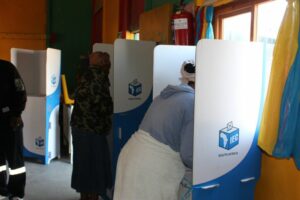
The Unemployment Insurance Fund (UIF) provides a temporary financial lifeline for workers who become unemployed or are unable to work due to illness, or maternity or parental leave. Workers and employers contribute 1% of the worker’s salary to the UIF monthly, for the benefit of the employee. It is workers’ monies and must be used to protect them in their moments of need.
Employers who have fallen into financial distress and can no longer afford to pay workers can and must apply for the UIF’s Temporary Employer/Employee Relief Scheme (Ters) to avoid retrenching workers. The Commission of Conciliation, Mediation and Arbitration (CCMA) administers Ters on behalf of the UIF.
During the Covid-19 lockdown, the UIF paid out over R65-billion in Ters benefits, bringing invaluable relief to 5.7-million workers who could not go to work due to lockdown restrictions. To qualify for the scheme, companies have to satisfy stringent terms set by the CCMA. For instance, Cosatu (Congress of South African Trade Unions) was aggrieved when in early 2024, the CCMA rejected a Ters application by the South African Post Office, when it was on the verge of retrenching 6,000 workers, after government had intervened to stop it from being provisionally liquidated.
It is for this reason that Cosatu was appalled to find out that a company that did not qualify for the scheme was granted more than R800-million in Ters benefits. The Siyanda-Bakgatla platinum mine (SBM) first applied for financial relief from Ters in early 2024 but was rejected. The application R807-million relief over 12 months was later mysteriously approved, by the then acting director-general of the Department of Employment and Labour, Viwe Mlenzana, who has since left the department.
SBM is reported to have received an initial payment of R67-million in February but continued to receive monthly disbursements of R61-million in May, June, and July – even as labour minister Nomakhosazana Meth was said to have halted payments pending a forensic investigation. How these subsequent payments were approved, who signed off on them, and under what authority, remain unanswered questions that demand urgent and public answers.
Cosatu is demanding the immediate release of the forensic report, for it be tabled at Nedlac, and that the full might of the law be brought to bear on any persons found to have been involved in wrongdoing.
Unsurprisingly, this is not the first scandal at the UIF. UIF commissioner, Teboho Maruping was suspended in September 2024, soon after minister Meth came into office. Maruping was under investigation for his alleged involvement in a R5-billion “job creation” scheme, a dodgy deal linked to Thuja Capital that the Pretoria High Court cancelled.
If the above depicts the high-level looting of UIF resources, the everyday reality for ordinary workers paints an equally disturbing picture. Daily, the Cosatu call centre is bombarded with queries from workers who cannot claim their rightful benefits.

For too long, workers have suffered due to delays and inefficiencies in accessing the benefits they are legally entitled to. We have heard countless stories of mothers who return to work without receiving their maternity benefits, despite having applied on time. In some cases, their children are already walking, yet they have not received a single cent.
In September last year, the UIF’s online portal, uFiling, went offline for more than a month, leaving thousands of employers and workers stranded. The public was initially told this was due to “planned maintenance.” The truth, however, was that a legal spat between two contractors had brought the critical digital infrastructure to its knees. Companies were left scrambling to make submissions manually, sending UI-19 forms via email or queuing at UIF offices, while workers seeking to claim benefits were forced to endure long queues, red tape, and sheer indifference from UIF officials.
Many workers, particularly for those recently retrenched or on maternity leave, the cost of a single trip to the UIF office is already unaffordable. To then be turned away for a photocopy or told to “come back tomorrow” is more than inefficiency – it’s cruelty.
At the time, Cosatu wrote to the acting UIF commissioner, Judith Kumbi, but received no response. The silence only served to compound workers’ frustration and raised questions about the UIF’s willingness or ability to resolve the crisis.
South Africa cannot afford to tolerate the systemic failure and/or looting of the UIF. This is not government money. This is not a slush fund. It is a contributory fund built on the hard-earned wages of millions of workers and the payments of employers. Every cent must be accounted for.
Cosatu firmly believes the time has come for President Cyril Ramaphosa to place the UIF under administration, with clear mandates for the Hawks, the SIU, and Sars to overhaul its systems, clean house, and rebuild a functioning, worker-centric institution.
The process must start with an independent investigation into all irregular payments, including the SBM and Thuja Capital scandals; suspension of all Labour Activation Programmes (LAPs) until audits are complete; the urgent release of the UIF’s actuarial report, to be tabled at Nedlac; and ensuring uFiling is a functional and reliable digital platform.
Additionally, parliament’s Standing Committee on Public Accounts (Scopa) must summon Minister Meth and the UIF leadership to account for the generic failures of the UIF to deliver on its mandate and provide a platform for organised business and labour to raise their grievances and proposals. The rot is deep, but with political will, law enforcement action, and a genuine commitment to social justice, the UIF can be restored to its purpose of protecting workers, not empowering opportunists who squander billions of workers’ monies.
Workers are being failed, and Cosatu refuses to look the other way. For the sake of South Africa’s workers and their families, the looting must stop. The rebuilding must begin, now.
Zanele Sabela is the spokesperson for Cosatu




